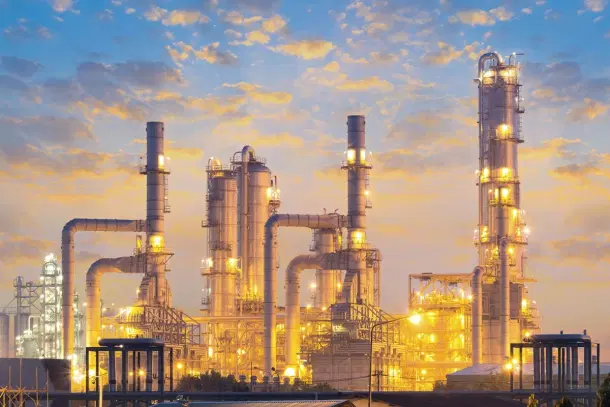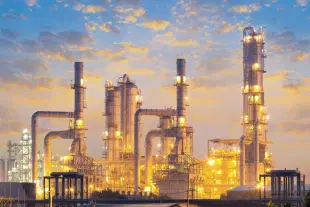News Brief
India's Refiners Turn To Middle East Crude To Offset Russian Supply Cuts Amid Rising Moscow Demand And OPEC Commitments
Vansh Gupta
Dec 24, 2024, 05:46 PM | Updated 05:45 PM IST
Save & read from anywhere!
Bookmark stories for easy access on any device or the Swarajya app.


Indian state-owned refiners are considering increasing crude imports from the Middle East as spot supplies from their top supplier, Russia, have dwindled.
Three major refiners—Indian Oil Corporation (IOC), Bharat Petroleum Corporation Limited (BPCL), and Hindustan Petroleum Corporation Limited (HPCL)—face a shortfall of 8-10 million barrels of Russian oil for January loading, according to three refining sources.
The refiners attribute this decline to Russia's rising domestic demand, commitments under the OPEC pact, and disruptions in crude exports caused by adverse weather and refinery operations resuming post-maintenance. This development could push India to seek alternative sources, potentially driving up prices for high-sulfur crude oil globally.
To address the immediate shortfall, Indian refiners plan to tap optional volumes from Middle Eastern suppliers under existing term contracts or float spot tenders for high-sulfur crude. Additionally, they are prepared to rely on existing inventories to sustain crude processing through March.
Russia has been India’s largest crude supplier since 2022, accounting for over a third of its energy imports. India emerged as the top buyer of Russian oil following European Union sanctions in response to Russia’s invasion of Ukraine. However, Moscow's tightening export availability poses a challenge.
"We have to explore alternative grades as Russia's own demand is rising and it has to meet its commitments under OPEC," said one refining source.
Meanwhile, some traders are reportedly offering Russian crude for payments in Chinese Yuan. However, Indian state refiners ceased such transactions last year following government advisories against Yuan payments.
While alternative crude grades are available in the market, refiners face potential economic drawbacks. "It is not that alternatives to Russian oil are unavailable, but our economics will suffer," cautioned a source.
The shift to Middle Eastern crude highlights India’s growing need for energy diversification amid evolving global oil market dynamics.
Vansh Gupta is an Editorial Associate at Swarajya.





